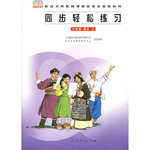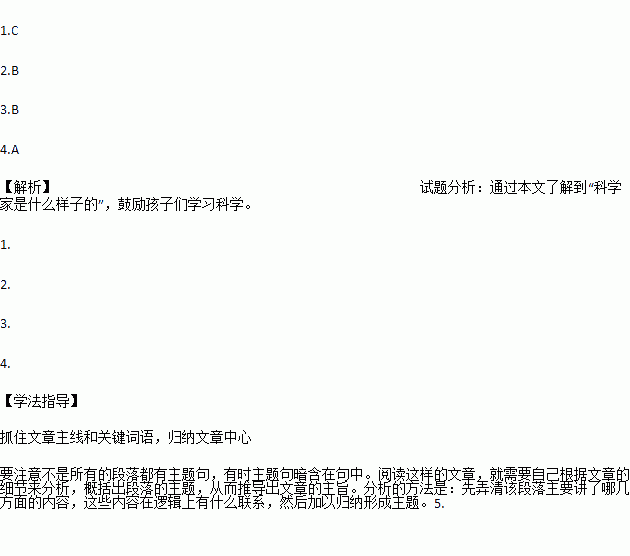题目内容
What a Scientist Is Like
If you were asked to imagine a scientist,what image(形象)would come to your mind?The common idea that most kids from kindergarten through college have of a scientist is a man wearing a white lab coat with messy hair, big glasses,and several glass cups of mysterious colorful liquids giving off clouds of smoke.As for adults,the majority view scientists as strange people who spend 100 hours a week slaving away in a lonely laboratory.However, the reality is quite different.
Recently I’ve had a chance to take part in a scientific experience far from my laboratory and into Costa Rica.It supports a huge amount of wildlife due to its geographical placement between North and South America.It is home to more than 500,000 species,which represents nearly 4% of the total species worldwide!
First we worked alongside conservationists to preserve wildlife at a leatherback turtle(棱皮龟)rescue center. We helped the volunteers preserve turtle populations by removing rubbish from the shoreline to create a safe environment for turtle eggs to come out.After that we stayed at Mount Arenal where we studied seismic activity relating to earthquakes.During our stay at Arenal,we rode over the mountainous areas and took a long walk through the rainforest.After reaching the top,we went down and through waterfalls to the beautiful valley below!On the last day we got a hands-on introduction to rocket science where we learned about new rocket technology that will be used on the international space station.
During my Costa Rica experience,I know that being a scientist doesn’t mean working in a lab all day and night. A scientist is one who loves learning and getting a better understanding of the world from helping preserve wild-life, learning about earthquakes or inventing rockets.I think that schools should really stress that science is so much more than wearing a lab coat and mixing chemicals.Kids need to be aware of the excitement and adventures science can bring!
1.According to the first paragraph,scientists are often believed .
A. to work as slaves B. to behave in a strange way
C. to spend too much time in labs D. to do experiments in messy labs
2.The author helped to preserve the turtle population by .
A. creating a safe nest for turtles B. picking up rubbish on the shoreline
C. collecting the turtle eggs on the beach D. finding a comfortable environment for turtles
3.What does the author learn about science from his experience?
A. Science is full of boring experiments. B. Science is more than working in a lab.
C. Science is related to mysterious liquids. D. Science is about wildlife and earthquakes.
4.Why does the author write this passage?
A. To encourage kids to study science. B. To tell the story of traveling in Costa Rica.
C. To expect more people to travel in Costa Rica. D. To share the secrets behind science phenomena.
 同步轻松练习系列答案
同步轻松练习系列答案

 与) before winning the election.
与) before winning the election. sive attendee.
sive attendee. at’s to say, I don’t agree with you at all.
at’s to say, I don’t agree with you at all.